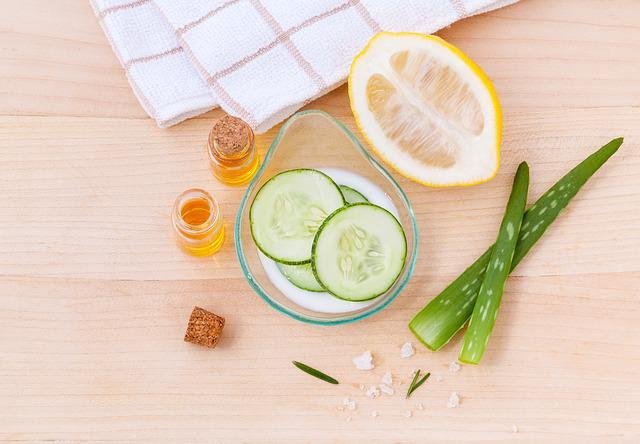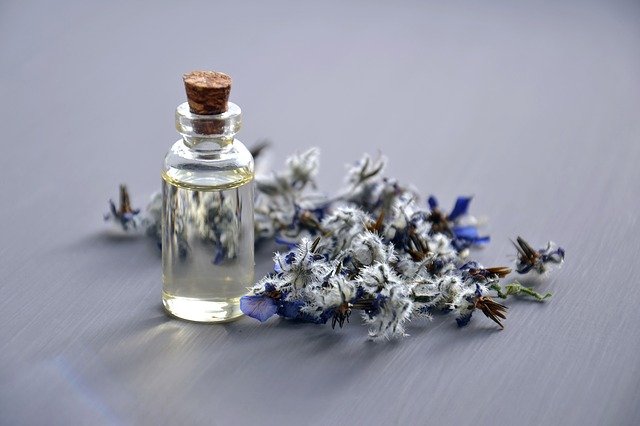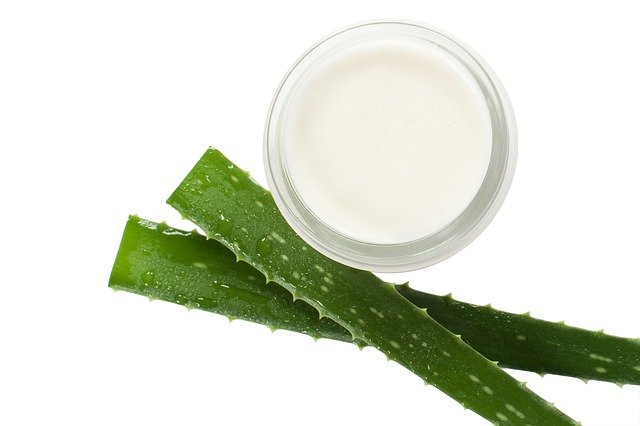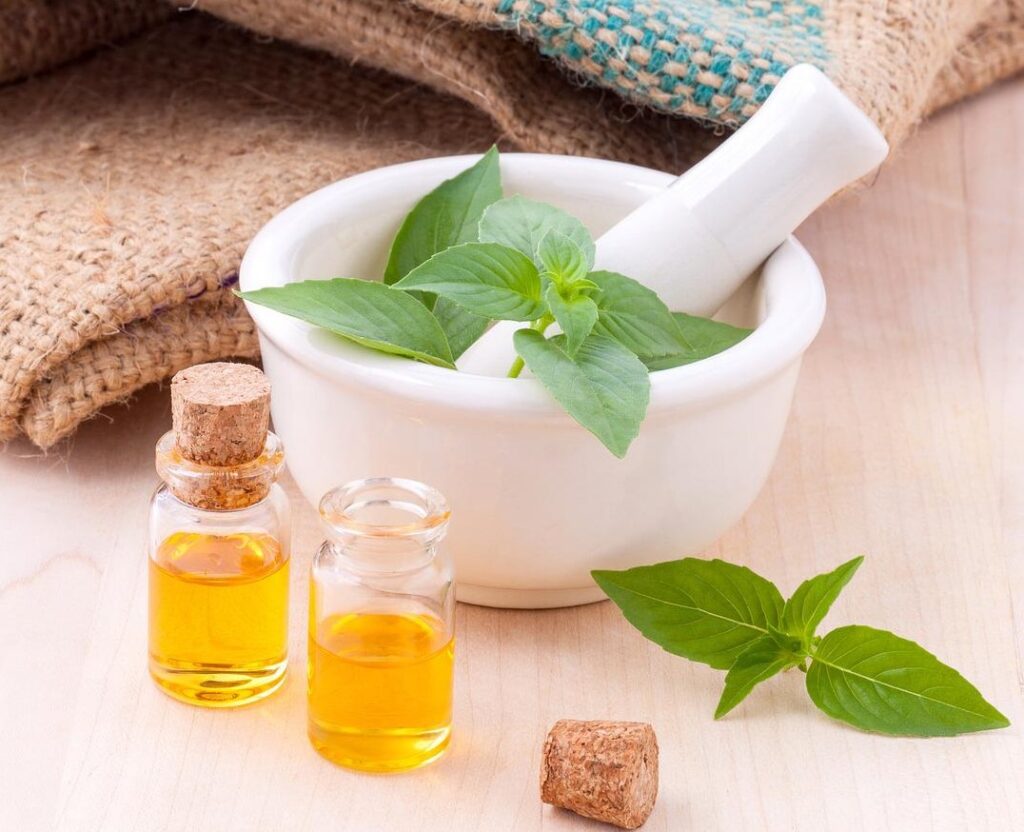Why Natural Skincare is Better: 5 Fantastic Reasons to Switch
Natural skincare is vastly superior to any other type of skincare because it respects your skin instead of trying to overpower it with chemicals. There’s no need to spend a fortune on synthetic skincare products. You can buy the most expensive skincare products available on the market, but that doesn’t mean they’re providing the best benefits for your skin.
- What Are "Natural" Skin-Care Products?
- What You’re Really Getting When You Opt for ‘Natural’ Skincare
- Is Switching to All-Natural Beauty Products Better for Your Skin?
- 5 Reasons to Switch: The Benefits of Natural Skincare Products
- Potential Drawbacks of Natural Skincare
- What Dermatologists Want You to Know About "Natural" Skincare
- Not all-natural skincare products and ingredients are effective for every purpose.
- Some natural ingredients can be irritating and even harmful if applied too frequently or in high concentrations.
- Many natural ingredients have been used by skin professionals and dermatologists for decades. More ingredients and benefits of natural skincare ingredients are being discovered as time goes on.
- How to Make the Switch To "Clean Beauty"
- Natural Skincare Is Best, but the Journey Doesn’t End There
- Natural Skincare is a Journey Worth Taking
- Natural Skincare FAQs
- 1.) What makes natural skincare a better choice?
- 2.) What kinds of ingredients are found in natural skincare products?
- 3.) How can I start switching to natural skincare?
- 4.) Is it possible to create effective DIY natural skincare products at home?
- 5.) Are natural skincare products just as effective as traditional ones?
- 6.) Can natural skincare help with sensitive skin?
- 7.) Will I see immediate results when switching to natural skincare?
- 8.) How do I know if a skincare product is truly natural?
- 9.) Can natural skincare products help with acne?
- 10.) Are natural skincare products more environmentally friendly?
We’ve all been taught to believe that more expensive is always better, and while that may be true for some things, it’s not always true in regard to skincare. Shortly, we’ll discuss five amazing reasons why natural skincare is better than alternative synthetic skincare products widely available on the market today.
But, before we get to those golden reasons, it would be wise to unpack a bit of context first.
What Are “Natural” Skin-Care Products?
In recent years, there has been a resurgence in the use of natural skin-care products. These products are generally thought to be made without harsh chemicals, artificial additives, or fragrances. Sometimes, they can even be cheaper than their synthetic counterparts, especially if you purchase the necessary ingredients to make homemade all-natural skincare products yourself.
What makes these products genuinely “natural” is that they don’t contain any chemically sourced ingredients and instead derive ingredients from nature (plants, minerals, and so on).
What does the FDA say about using the word “natural” for skincare products?
Well, according to the FDA’s Small Businesses & Homemade Cosmetics: Fact Sheet (see section 7), they have not defined the term “natural” and have also not established a regulatory definition for the term in cosmetic labeling. Though they haven’t defined the terms to the degree that some may like, they do require that all claims on labels are truthful and not misleading.
So, if something claims to be natural, the FDA requires that statement to be truthful.
What About “Organic” Skincare Products?
In regards to “organic” skincare claims, there’s quite a bit of guidance in regard to labeling, ingredients, and more. Here are some general points:
- The U.S. Department of Agriculture (USDA) oversees the Natural Organic Program (NOP)
- The NOP defines the term organic and has a certification process for products that would seek to claim to be organic or for products that would claim they’re made with organic ingredients
- There are actually four kinds of organic labels, each with specific requirements. You can read more about that on the USDA’s website here: “Labeling Organic Products“
So, if something’s truly natural, no synthetic ingredients should be listed on the ingredient label. Also, for organic skincare products, there are requirements that must be satisfied in order to make the claim they’re organic and to carry one of the various organic labels.
Some common natural ingredients used in skin-care products include honey, olive oil, essential oils, aloe, herbs, coconut oil, various minerals, and the list goes on.
What You’re Really Getting When You Opt for ‘Natural’ Skincare

When you make the choice to go natural with your skincare, you’re getting a lot more than just a product that doesn’t contain harsh chemicals. Natural skincare is founded upon using ingredients that are beneficial for your skin rather than using chemicals that could potentially do harm.
Some of the natural ingredients used in natural skincare products have been used for thousands of years in a variety of cultures and geographical locations throughout the world. It’s well-known that the ancient Israelites used all kinds of natural organic ingredients, including frankincense and myrrh. Furthermore, the Egyptians used lavender, lily, chamomile, mint, rosemary, cedar, aloe, and more.
Again, natural products should be highly preferred over chemical-ridden products because your skin doesn’t need to be manipulated or overpowered by synthetic substances to maintain its health.
Some of the best ingredients for natural skincare include oils, skin butter, and balms. These can be used as moisturizers or even as makeup removers. Additionally, they can be used on their own to soothe and protect your skin.
Many of the ingredients in natural skincare products are even effective at fighting acne, helping with wrinkles, relieving eczema, and much more.
When you use natural ingredients in skincare, you’re using ingredients that you can find yourself. These are ingredients that you can safely touch and feel, things that can be found in nature, and things that have been used for thousands of years with proven results time and time again.
Is Switching to All-Natural Beauty Products Better for Your Skin?
Indeed, our opinion is that natural skincare products are often better for your skin under normal circumstances. This is, of course, debated among dermatologists, skincare companies, and consumers alike. One of the arguments that are often presented for products containing synthetic chemicals is that they are more effective.
It’s true that some synthetic ingredients may be more effective, though that’s just not good enough. In our cookie-cutter society of quick fixes for profit, effectiveness isn’t the only consideration. Also, effectiveness can be measured in many ways in a variety of circumstances.
For example, diet pills, emotion-enhancing drugs, or performance-enhancing drugs may indeed be quite effective, though effectiveness alone isn’t the point. In regards to traditional skincare, what is in those synthetic cocktails, exactly, and are they healthy as well?
How about side effects or chemical load over time? While there is a place for synthetic compounds in medicine, OTC medications, and so on, I’ll take something that’s fifty percent effective yet all-natural over an ingredients list that sounds like a list for motor oil any day.
All kinds of natural ingredients are quite effective and have been proven to be so, as stated earlier. So, the effectiveness argument simply doesn’t stand.
5 Reasons to Switch: The Benefits of Natural Skincare Products

1.) They’re Better for the Environment
Natural products are better for the environment because they don’t use harmful chemicals, thus reducing the amount of chemical waste you produce. All of the chemicals on the ingredient label will end up going down the drain.
Why put chemicals on your skin only to wash them down the drain? Wouldn’t it be better for the environment to wash plant ingredients and other natural ingredients down the drain?
2.) They’re More Gentle
Natural skincare ingredients are oftentimes far gentler for the skin than chemical ingredients. Whether we’re talking peroxides, alcohols, sulfates, acids, antibiotics like Triclosan, or a number of other ingredients, it’s well-known that many of those ingredients are oftentimes far too concentrated to be used regularly, leading to peeling and other skin reactions.
To be fair, natural skincare products can also cause reactions, though that’s rare overall. For people with allergies, sensitive skin, or skin diseases like eczema, it’s best to try natural skincare products in moderation to see how the skin reacts.
3.) Peace of Mind
When you make the switch to natural skincare products or your own homemade skincare products, you can rest at ease knowing that you can literally go out and find the ingredients you’re putting on your skin.
Does your homemade body wash contain rose water? You can make your own rose water from fresh roses at home. Does your sunburn ointment contain aloe vera? Well, we all know what aloe plants look like. You can grow your own and create your own sunburn ointment.
It’s comforting to know what we put into our bodies when we eat, and it’s also comforting to know what we’re putting onto our skin, too, especially since some studies show an average 64% absorption skin rate for solvents.
Skin absorption rates can vary depending on what’s being applied, though rest assured, chemicals can and will be absorbed by the skin, your body’s largest organ.
4.) Your Nose Will Thank You
There is simply no equal when it comes to the kinds of amazing scents and fragrances that can be created with natural botanical skincare ingredients. With the widespread availability of any number of high-quality natural skincare products, essential oils, blends, and floral waters like rose water, it’s so easy to customize your skincare routine to absolutely whatever scents are your favorites.
5.) They Reduce Synthetic Chemical Exposure
While proponents of synthetic skincare products may claim effectiveness and safety as major features of those products, there’s no debate over the fact that their effectiveness, to a large degree, comes from compounds made in labs. Those compounds are formulated in specific concentrations for their intended use case, capitalizing on maximum effectiveness.
While many ingredients used in traditional skincare products are touted to be safe, one ultimately must decide whether one will trust those claims of safety or not.
Either way, one unavoidable truth is that synthetic skincare products contain chemicals and compounds most not often found in nature, and those chemicals are being applied to the largest organ of the body. This same organ will definitely absorb at least some percentage of those chemicals into the bloodstream, as noted earlier.
Recent findings from a 2022 report from Zero Mercury Group showed dangerously high levels of mercury found in some skin creams sold online. It’s our opinion that if we need to decide between constant chemical exposure on a daily basis or exposure to compounds that are found in nature from responsibly using natural products, we’ll choose the latter.
While many consider the former option settled in many ways, there’s still a huge question mark, in our opinion, as to the safety and long-term chemical exposure to many synthetic skincare ingredients.
Potential Drawbacks of Natural Skincare
There are many benefits to using natural skincare products, but as always, use caution whenever trying something new. Some drawbacks may include the potential for irritation and less effectiveness for certain skin conditions. Since irritation is common with traditional skincare products as well, perhaps it’s not a true drawback.
Additionally, some ingredients in natural skincare products may be difficult to find or expensive. Though there are plenty of expensive synthetic skincare ingredients as well, this isn’t a downside to our natural skincare only. Regardless, test new skincare products on a small patch of your skin first, especially if you have sensitive skin.
What Dermatologists Want You to Know About “Natural” Skincare

Dermatologists are always on the lookout for new, innovative skincare products. And while many of these products use harsh chemicals and artificial ingredients, there’s a growing trend among dermatologists to recommend natural skincare remedies. In our research, the below three points are often made by dermatologists.
Not all-natural skincare products and ingredients are effective for every purpose.
It’s important to find a product that is specifically designed for your unique skin type and test it out before using it regularly. If you are creating your own products, then it’s wise to do a bit of research on how to use the natural ingredients you’re planning to use for your own homemade recipes.
Our society has developed this odd habit over the years: anything sold in a store from a reputable company must be safe, and many individuals purchase skincare products made in the lab with that same mindset. However, much in the very same way, many proponents of natural skincare get into the rut of thinking that every single natural ingredient must be beneficial for absolutely every ailment that befalls mankind.
Of course, that’s an exaggeration, though it can’t be stressed enough that whether a product is synthetic or natural, it’s wise to do some research before going “all-in” on any natural ingredient.
Some natural ingredients can be irritating and even harmful if applied too frequently or in high concentrations.
It’s best to get some guidance in regards to natural ingredients you plan to use in any homemade recipes and formulations to ensure you’re not using high concentrations of any natural compound. This is especially important for things like essential oils. If we are talking about olive oil or aloe vera, it’s not a problem.
Essential oils are already in a highly concentrated form, so use caution. Additionally, it’s also important to be aware of things such as photosensitive essential oils that can help to increase the likelihood of sunburn and skin damage from the sun. Do your research and be aware of which ingredients are more concentrated, how to use them, and the best practices for using them safely.
For example, carrier oils should be used when applying essentials onto your skin rather than applying them in their pure, concentrated form.
Many natural ingredients have been used by skin professionals and dermatologists for decades. More ingredients and benefits of natural skincare ingredients are being discovered as time goes on.
Dermatologists use a variety of natural ingredients in their skincare treatments. Some of these include rosehip oil, lavender oil, chamomile oil, and naturally derived vitamin E. Many ingredients are believed to be beneficial for the skin because they are anti-inflammatory, anti-aging, and hydrating.
Additionally, aloe vera, shea butter, coconut oil, honey, and apple cider vinegar have been used in dermatology for a variety of applications.
Colloidal oatmeal treatment for eczema sufferers is one great example of how natural skincare can be leveraged to help people suffering from that particular disease. For additional reading on that, check out a study on the Efficacy of 1% Colloidal Oatmeal Cream for Eczema as an add-on treatment for eczema therapy.
How to Make the Switch To “Clean Beauty“

The natural skincare, aka “clean beauty” movement, is growing in popularity, and for good reason. Not only are these products made with clean ingredients more environmentally friendly, but they also work better than those containing harsh chemicals.
7 Tips for How to Make the Switch to “Clean Beauty”:
1. Look for “natural” or “organic” on your labels. Clean beauty products typically contain fewer harmful chemicals and more natural ingredients.
2. Evaluate your current skincare routine. Are you using products that are laden with sulfates, parabens, and other harsh chemicals? Switch to brands that use cleaner ingredients instead.
3. Choose natural skin-care products that won’t clog pores or cause breakouts, leading to frustration or anxiety. Using the wrong natural ingredients can make your transition to clean beauty difficult. Non-cosmogenic oils vs. comedogenic oils are important considerations in this regard. How have you ever heard that you can cleanse your skin with oil? You can check out our post on the oil cleansing method to learn more.
4. Synthetic fragrances and dyes should be avoided. If the fragrance or dye doesn’t sound like it’s plant-based, or if you can’t pronounce it, it’s most likely not natural.
5. Avoid using products that contain alcohol and harsh peroxides. These harsh ingredients can cause the skin to become too dry, peel, or even become damaged.
6. Avoid parabens, phthalates, sulfates, petrochemicals, synthetic preservatives, and other chemicals. According to the Environmental Working Group (EWG), 80% of cosmetics may contain one of more than two dozen impurities that are linked to cancer and other potential health concerns.
7. Develop the habit of always reading the labels when purchasing skincare products. Even better, you can make homemade skincare products to know exactly what you’re putting on your skin.
Check out these pages for just a few of the homemade skincare recipes we’ve written about:
- How to Make Body Butter
- How to make Homemade DIY Hot-Process Soap
- Homemade Face Wash
- Almond Oil for Dark Circles
- Manuka Honey Recipes
- Homemade Facial Peel Recipes
- DIY Blackhead Mask Glue
- Patchouli Soap Benefits and Recipes
The natural skincare industry is growing daily and becoming more popular than ever. Consumers are looking for products that are safe for their skin. However, this does not mean that all-natural skincare products are equal. For premade products, it’s important to find the ones that will suit your own needs and preferences, especially as related to your specific skin type.
This also, of course, carries over to any ingredients you plan to use in your own skincare recipes and concoctions. Research is key!
Natural Skincare Is Best, but the Journey Doesn’t End There
As with overall health, the best approach to skin health is holistic. Diet, exercise, and stress are major factors in your body’s ability to maintain ideal skin health effectively. There is no quick fix to healthy glowing skin.
Diet and Skin Health
A healthy diet can play a major role in the health and appearance of your skin. Your skin is largely made from water, which means that something as simple as keeping hydrated is beneficial for your skin. As we know, the foods we eat considerably affect our overall health, including our skin health.
For example, some people may be allergic or sensitive to the ingredients in certain fruits, nuts, or vegetables, so much so that underlying skin conditions like eczema could be triggered. Additionally, consuming a lot of sugars or unhealthy fats can be detrimental to skin health.
Exercise and Skin Health
Exercise has many benefits for overall health, including helping to improve skin health. This is because exercise can help to boost the production of healthy blood vessels, which helps deliver nutrients and oxygen to the skin cells. Additionally, regular exercise can help tone and tighten the skin, reducing the appearance of cellulite and other signs of aging. Sweating is also exceptionally beneficial for the skin since it clears away dirt and oil buildup in pores.
Stress and Skin Health
Skin is the largest organ in the body, protecting us from the environment. It absorbs and releases moisture, regulates body temperature, and filters out toxins. Though, the physical toxins in our environment are only one side of the coin. Stress, anxiety, and depression can dramatically impact our overall health, as well as the health of our skin.
The skin is indeed susceptible to stress and can suffer from several negative consequences, such as acne, wrinkles, other signs of premature aging, and skin moisture imbalances. Interestingly, exercise and diet are also important factors in stress management.
When diet and exercise are prioritized, your body and mind have a more solid foundation regarding managing stress.
Natural Skincare is a Journey Worth Taking

The switch to natural skincare is a journey worth taking. It is something that can improve your overall well-being, as well as your skin health. Not only are the ingredients generally more gentle when used correctly, but they can even work better than many of the synthetic products on the market. Additionally, maybe there’s a reason why they’re less effective at face value.
- Perhaps it’s not beneficial to slather on synthetic chemicals in order to make acne disappear in a matter of weeks.
- Perhaps it’s not normal to add chemicals to the skin that increase tone using any number of hard-to-pronounce ingredients.
- There is a holistic aspect to skin health that must be considered.
In the case of acne, the problem oftentimes isn’t only skin-deep. Diet is an excellent way to combat acne, as is stress maintenance. That’s just one example, though.
We invite the reader to consider how quick fixes have consumed our society, especially with regard to skincare. Instead of quick fixes and concentrated chemicals, consider a more holistic approach to skin health. Thankfully, there’s an increasing awareness of the true effectiveness of many natural skincare ingredients, and new studies are being done on a regular basis.
The journey is worth it for you, your skin, and your family’s skin. Do some research, enjoy the journey, and your healthy skin will thank you.
Natural Skincare FAQs
1.) What makes natural skincare a better choice?
Natural skincare often utilizes ingredients that work in harmony with your body, leading to fewer side effects and a reduced risk of irritation compared to synthetic products.
2.) What kinds of ingredients are found in natural skincare products?
You’ll typically find plant-based components like aloe vera, coconut oil, shea butter, and essential oils, which are known for their nourishing and restorative properties.
3.) How can I start switching to natural skincare?
Begin by replacing products one at a time with natural alternatives as you run out, starting with those you use most frequently, like cleansers and moisturizers. Then, you can begin the even more exciting journey of creating your own natural skincare products tailored to the exact fragrances and utilities you prefer.
4.) Is it possible to create effective DIY natural skincare products at home?
Absolutely! Many natural skincare ingredients can be combined to create homemade masks, scrubs, and lotions that are both effective and cost-efficient. We prefer DIY and homemade over store-bought. But there are tons of amazing natural products out there you can begin with initially.
5.) Are natural skincare products just as effective as traditional ones?
Yes, many natural products provide excellent results, often with additional benefits like antioxidant protection and essential nutrients that support skin health.
6.) Can natural skincare help with sensitive skin?
Natural skincare products are often gentler on the skin, making them a great choice for those with sensitive skin types. To be certain, you can always patch-test a natural ingredient before you start to use it regularly. We’d actually recommend doing this with any natural ingredients never before used. This is true with synthetic products as well.
7.) Will I see immediate results when switching to natural skincare?
While some benefits may be noticeable right away, like hydration, others, such as improvements in skin tone or texture, may take longer to become apparent as your skin adjusts.
8.) How do I know if a skincare product is truly natural?
Look for certifications like USDA Organic or Non-GMO Project Verified, and read ingredient labels carefully to ensure the product contains natural substances.
9.) Can natural skincare products help with acne?
Many natural ingredients like aloe, manuka honey, and more have anti-inflammatory and antibacterial properties that can help to soothe and treat acne-prone skin. See the links earlier in this post to read more about those ingredients, as well as DIY recipes for acne.
10.) Are natural skincare products more environmentally friendly?
Yes. Natural skincare products typically have a smaller environmental footprint, with biodegradable ingredients, and are often more sustainably packaged and sourced.


